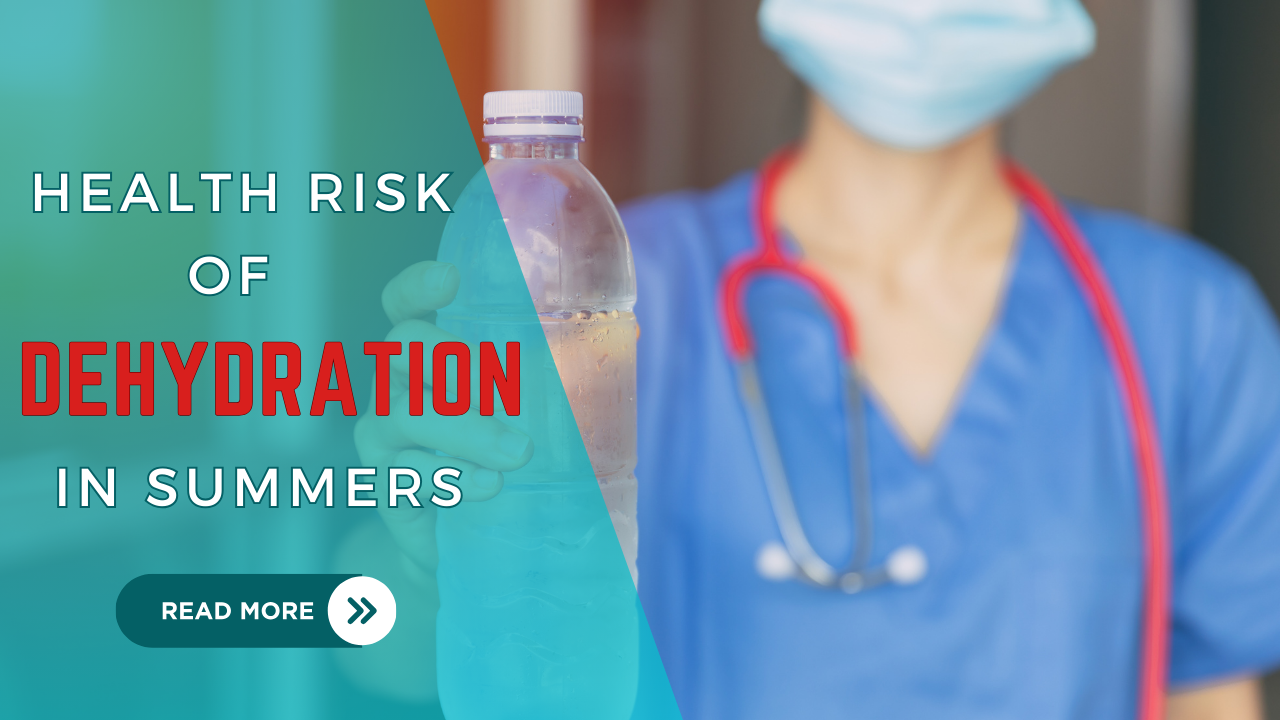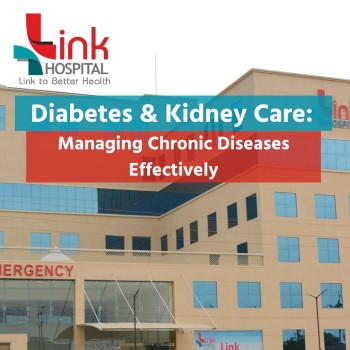The sweltering summer heat poses a significant threat to our well-being, particularly concerning dehydration, a prevalent health issue during this season. Maintaining adequate hydration becomes paramount as temperatures soar, necessitating a consistent intake of water.
Dehydration manifests when the body loses more fluids than it absorbs, a condition exacerbated by the intense summer heat. Understanding the causes, symptoms, and preventive measures of dehydration is crucial for safeguarding our health during the warmest months of the year.
What is Dehydration?
Dehydration ensues from an imbalance between fluid intake and loss, leading to disruptions in vital bodily functions and electrolyte imbalances. Essentially, it occurs when the body lacks sufficient water to support its physiological processes. Neglecting to replenish lost fluids results in dehydration, compromising crucial bodily functions such as thermoregulation, digestion, and waste elimination. These disruptions have adverse repercussions on our health.
While dehydration can affect individuals of all ages, it poses heightened risks for vulnerable populations such as young children and older adults. In children, severe diarrhoea and vomiting are common triggers for dehydration. Older adults are also susceptible due to underlying medical conditions, medication side effects, and naturally lower body water content. Severe dehydration necessitates immediate medical intervention, although mild to moderate cases can often be rectified by increasing fluid consumption.
Causes of Dehydration
Several factors can contribute to dehydration, ranging from lifestyle choices to environmental circumstances. Understanding these causes is crucial in preventing and managing dehydration effectively. Some common causes include:
1. Inadequate Fluid Intake: Failing to drink enough water due to illness, busy schedules, or limited access to clean water while travelling or camping can lead to dehydration.
2. Excessive Sweating: High temperatures during summer prompt increased sweating as the body attempts to cool down. If lost fluids are not replaced adequately, dehydration can occur rapidly.
3. Alcohol and Caffeine Consumption: Beverages containing alcohol or caffeine act as diuretics, promoting urine production and reducing fluid retention. Overconsumption of these beverages, especially in hot weather, can exacerbate dehydration.
4. Physical Activity: Engaging in strenuous exercise or outdoor activities without proper hydration practices can lead to significant fluid loss through perspiration.
5. Diarrhea: Diarrhea is a common cause of excessive water loss, leading to dehydration due to frequent and watery bowel movements. Many bacterial and viral infections that cause diarrhoea are prevalent during the summer months.
Signs of Dehydration
Recognizing the signs and symptoms of dehydration is vital for prompt intervention and treatment. Here are some common indicators of dehydration:
1. Thirst: Feeling thirsty is one of the initial signs of dehydration. However, by the time thirst is experienced, mild dehydration may already be present.
2. Dark Urine: Concentrated waste and a lack of water are reflected in urine that appears amber or dark yellow.
3. Dry Mouth and Lips: Reduced saliva production can result in dryness of the mouth and lips, common manifestations of dehydration.
4. Fatigue & Weakness: Dehydration can lead to feelings of fatigue and weakness as the body struggles to function optimally without adequate fluid intake.
5. Dizziness or Lightheadedness: Severe dehydration may cause a drop in blood pressure, leading to dizziness or lightheadedness, especially when standing up.
Who’s at the highest risk factor for Dehydration?
While dehydration can impact anyone, certain individuals are more vulnerable to its effects:
1. Elderly Individuals: Seniors are particularly susceptible to dehydration due to reduced thirst sensation and impaired kidney function.
2. Infants & Children: Children have a higher risk of dehydration as they lose fluids more rapidly through sweat and may not recognize or respond to thirst cues effectively.
3. Athletes and Outdoor Workers: Those engaged in strenuous physical activities or working outdoors are prone to dehydration due to increased fluid loss through perspiration.
4. Individuals with Chronic Conditions: People with chronic illnesses like renal disease or diabetes are at higher risk of dehydration due to altered fluid balance caused by their medical conditions.
Impact of Dehydration on Digestive Health
Dehydration can have several adverse effects on the digestive system, including:
1. Acid Reflux and Stomach Ulcers: Due to Insufficient water intake can stop making Digestive acid production in the stomach, potentially causing gastritis, ulcers, and acid reflux. Low levels of calcium and magnesium can also contribute to these digestive issues. Studies indicate that drinking water can temporarily raise stomach pH levels, alleviating severe acid reflux symptoms.
2. Constipation: Water plays a crucial role in aiding digestion by facilitating the movement of food through the intestines. Dehydration can result in the colon absorbing excess water from the stool, leading to constipation and discomfort.
3. Bloating and Nausea: Mild dehydration, typically around 1-2% fluid loss, can cause sensations of thirst. However, the body may misinterpret this thirst as hunger, leading to confusion and potential overeating. This misinterpretation can contribute to bloating and feelings of nausea.
4. Bad Breath and Dysphagia: Reduced saliva production due to dehydration can result in halitosis (bad breath) and may contribute to sensations of food sticking in the throat (dysphagia).
Understanding the increased vulnerability of certain groups to dehydration and its potential impact on digestive health underscores the importance of staying adequately hydrated for overall well-being.
Treatment of Dehydration
Dehydration can typically be managed at home, although severe cases may necessitate hospitalization. Hospital treatment may include the following interventions:
1. Intravenous Fluids: Fluids administered intravenously or through a vein are commonly used to rehydrate the body and restore fluid balance.
2. Electrolyte Monitoring: Regular monitoring of electrolyte levels helps track and correct any imbalances caused by dehydration.
3. Fever Management: In cases of dehydration accompanied by fever, Antipyretic or other appropriate medications may be administered to reduce fever and alleviate discomfort.
4. Rest: Adequate rest is essential during the recovery process to allow the body to recover and regain strength.
Prevention Strategies
Taking proactive measures can help prevent dehydration and its associated complications:
1. Hydration: Drink an ample amount of water throughout the day to maintain proper hydration levels. It's advisable to drink water before feeling thirsty, as thirst is a late indicator of dehydration.
2. High-Water Content Foods: Incorporate fruits and vegetables with high water content, such as watermelon, cucumber, and oranges, into your diet to supplement fluid intake.
3. Pre-Exercise Hydration: Before engaging in strenuous physical activities, consume at least 1.5 litres of water two hours beforehand to ensure adequate hydration. Post-exercise, replenish fluids to compensate for sweat loss.
4. Take Breaks and Seek Shade: When exercising or spending time outdoors, take frequent breaks in shaded areas to rest, cool down, and rehydrate.
5. Monitor Urine Color: Check the colour of your urine to gauge hydration levels. Clear or light-coloured urine indicates adequate hydration, while dark urine may suggest dehydration.
6. Limit Caffeine and Alcohol: Consume caffeine and alcohol in moderation, as these substances can contribute to fluid loss and exacerbate dehydration.
7. Seek Medical Attention: If symptoms of vomiting or diarrhoea persist, seek prompt medical attention for appropriate treatment, including intravenous or oral fluid replacement. Book an Appointment with the Best Doctors in Gwalior, and get treatment immediately.
8. Sun Protection: Wear lightweight, breathable clothing and use a wide-brimmed hat to protect yourself from excessive sun exposure and prevent overheating while outdoors.
Tips for Maintaining Hydration
Proper hydration is vital for overall health, especially during hot weather. Here are essential tips to help you stay adequately hydrated:
1. Consume Water-Rich Vegetables: Include vegetables with high water content, such as broccoli, spinach, cucumbers, cabbage, and onions, in your diet to boost hydration and nutrient intake.
2. Set Hydration Reminders: Use reminders or alarms to prompt yourself to drink water regularly, especially if you have a busy schedule that may lead to forgetting to stay hydrated.
3. Opt for Coconut Water: Coconut water is an excellent alternative to plain water as it is rich in nutrients, predominantly water, and offers various health benefits.
4. Choose Natural Fruit Juices: Incorporate fruits with high water content and nutrients into your diet, such as apples, watermelon, muskmelon, oranges, and more, by consuming natural fruit juices or eating whole fruits.
5. Carry a Water Bottle: Keep a reusable water bottle with you at all times to ensure easy access to water wherever you go, promoting consistent hydration throughout the day.
Conclusion:
Dehydration poses a significant health concern, particularly during the scorching summer season. Recognizing the causes and symptoms of dehydration is crucial for prompt identification and treatment. By prioritizing hydration, monitoring urine colour, and taking preventive measures, we can protect ourselves from the adverse effects of dehydration and enjoy a safe and healthy summer.











